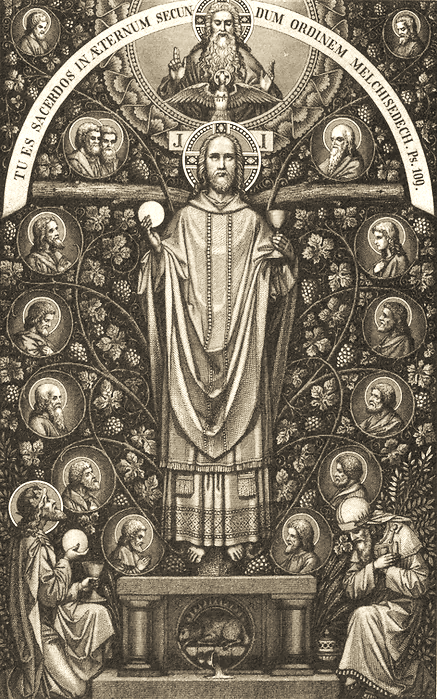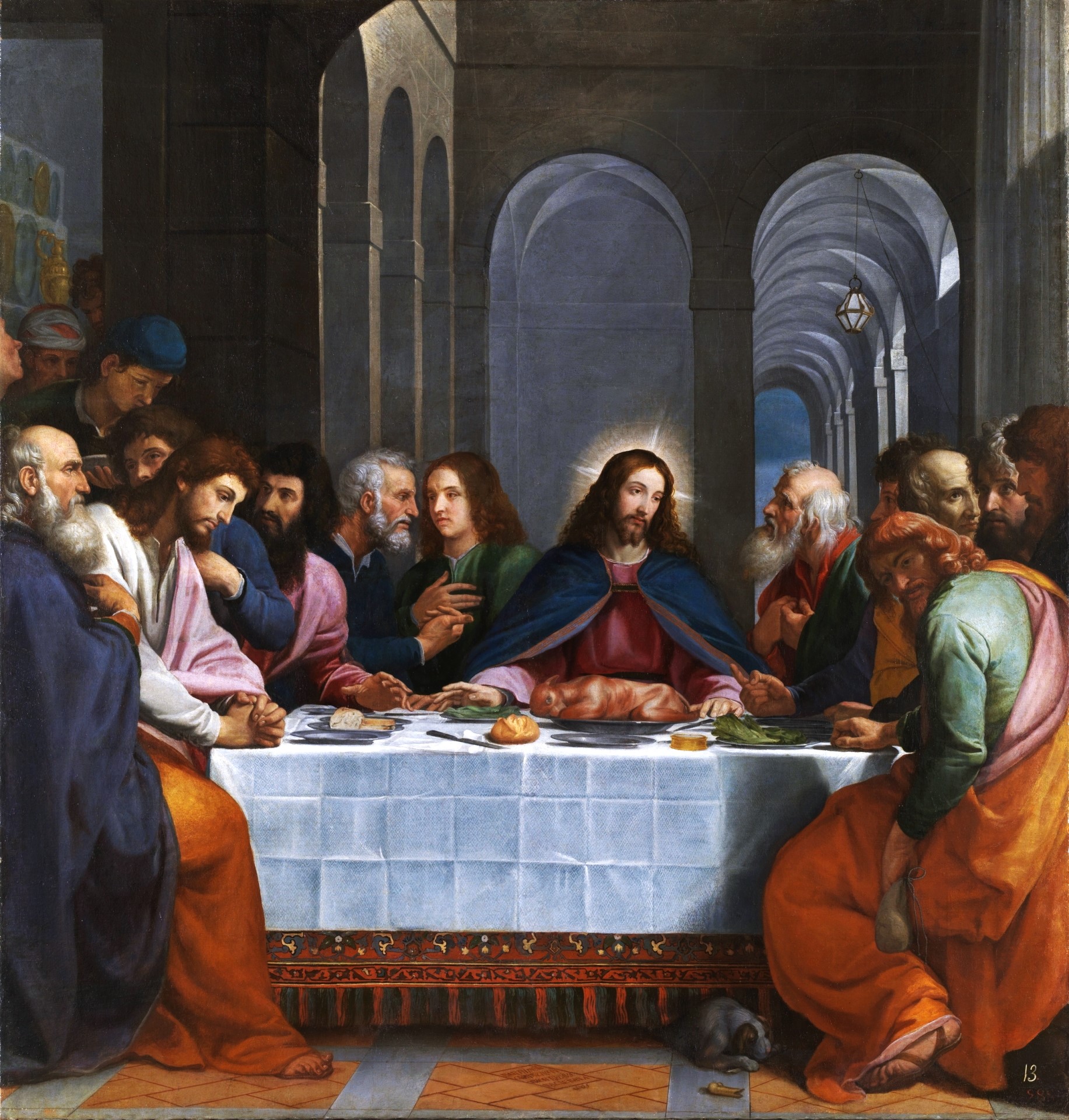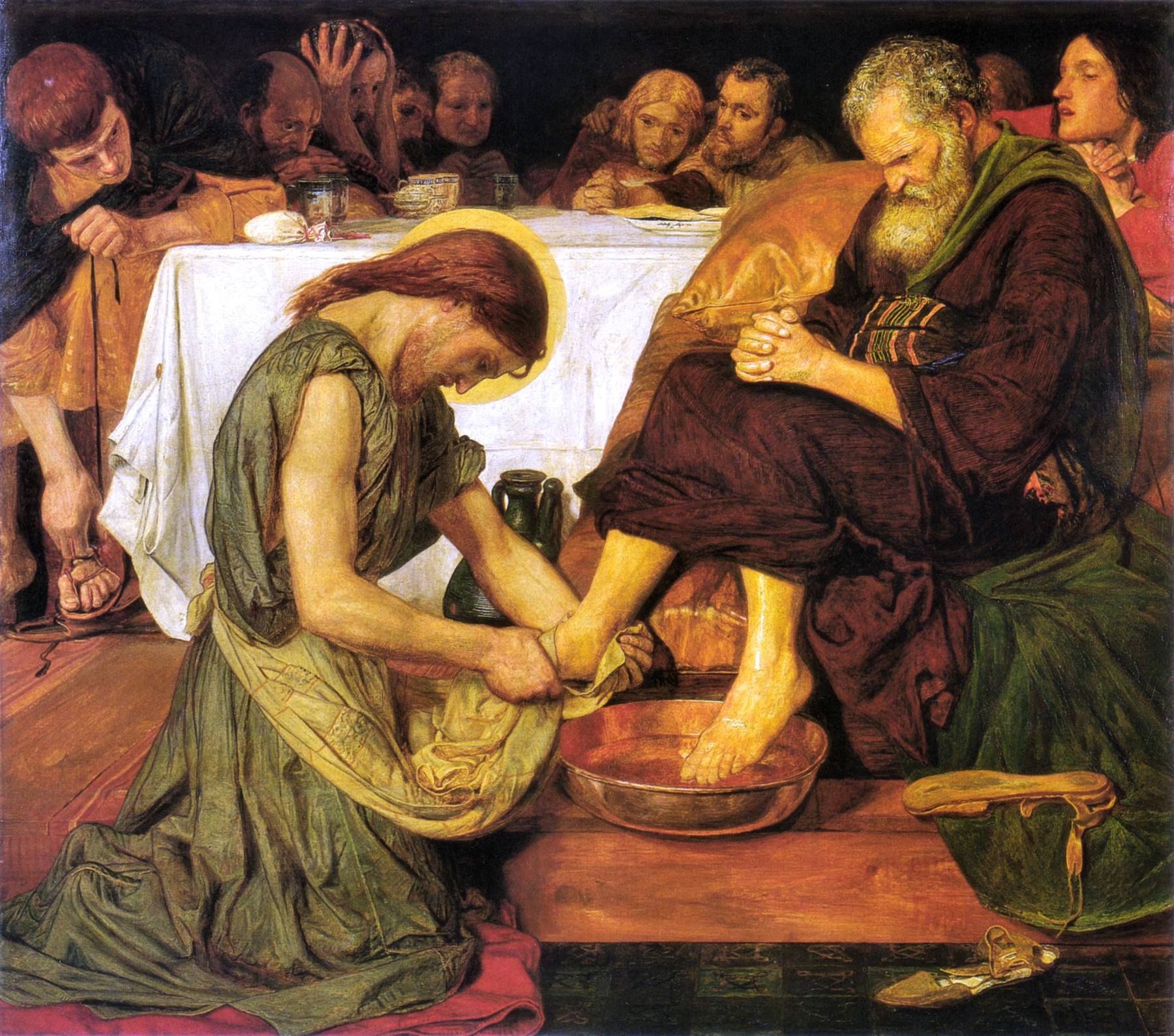Why is tonight different from all other nights, Papa?
The high point of the Jewish liturgical year: the Passover, the day when the Jews recollected and celebrated God’s deliverance of the ancient Hebrew peoples from bondage in Egypt and set in motion that which would bring about the giving of the Law, the founding of the Korban and Levitical priesthoods, and the establishment of the great Kingdom of Israel. The Passover connected the Jews of the present with the Hebrews of the past who experienced God’s great saving power while looking forward in hope to a future time when God definitely established what He had begun to establish on that very night, this very night.
In the midst of this great celebration, Jesus arises from the seder, girds Himself with a servant’s apron, and begins to shift the seder in a new direction. What had hitherto been a remembrance, a commemoration, becomes present and events begin to happen and unfold in real-time. This is the night. Christ begins to wash the feet of the Apostles – not the norm at the seder, not the norm for the host to do.
It is a sign of service and of humility and that those who would follow Him and be His disciples should do likewise, as He commands. Yet, it is so much more. These Apostles are Christ’s, they are His. They have been taught by Him and have been sent into the world by Him as proclaimers of the Kingdom. They have been baptized by Him. They are, as in Christ’s reply to Peter, already clean, yet they are washed specifically the feet. This is not to remove the grime of the street from them, for this would have already occurred prior to sitting at table as part of the Jewish rituals for entering a house. There is a two-fold meaning here: First, it is in preparation for establishing the Apostles as Priests of the New Covenant, for it is necessary that the Priests of the Temple wash their feet before offering sacrifice. Secondly, it is to sever Christ’s priests from bondage to the passing things of this world, even the Law.
Christ washes not their heads, but their feet; that which connects the person to the earth, and by drying the feet with His apron, takes upon Himself those very things; sin, decay and death of material things, disordered attachments to the things of this world, the condemnation of the Law. As He prepares His Apostles to become His priests, He the High Priest takes to Himself those very things for which there is reason to offer sacrifice, and in doing so prepares Himself as the victim of His very own sacrifice to be shortly offered to the Father in atonement for the sins of all.
All are clean, but not all for Judas remains connected to the passing things of this world.
Judas takes and shares a morsel offered to him by Christ. Herein we see a foreshadowing of both the suffering and lack of worldly rewards that are to come. Christ offers little in terms of worldly goods to those that follow Him, but rather a share in His own suffering through which comes about a share in His glorification. A morsel is a small thing, a pittance, barely enough of a mouthful. On this night of the Passover, Christ is offering Judas the promise of arriving at the Promised Land, the Heavenly Kingdom of the Father but also a foreshadowing that it will come about through renunciation, a leaving behind of the pleasures of the world and a passing through the desert. There is nothing here that would be foreign to a Jew, for this is all that is contained in the Jewish Passover and the hope of the Jews for which they have been praying for millennia. Judas knows it all too well. Yet here now, tonight is the night that is different from all other nights. Confronted with reality rather than a tenuous hope, Judas decides that he would rather have his fill with the fleshpots of Egypt, gets up from the table, and leaves to sell his birthright for a morsel as Esau did.
For Moses’ cowardice, the office of Lawgiver and High Priest were split apart; in Christ, they are made whole again. Christ, the only begotten Son of the Father, His very Word, now offers to His priests a new Law, a New Covenant that both fulfills the Law of Moses, the promises to the patriarchs, and the Father’s oath to Adam, but goes beyond it to something new: Love one another, as I have loved and shall love you. And you and I shall share in all things, the very meaning of friendship, and in doing so shall share in friendship with the Father, for all that I possess comes from Him, which you too now shall possess in its fullness, to paraphrase the great discourse that spans the later chapters of John. And so, Christ sanctifies His own and establishes them as priests of the New Covenant, restoring the ancient high priesthood of Melchizedek and ending the line of Aaron.

Christ the Eternal High Priest, Maximilian Schmalzl, late 19th c.
In the midst of His Apostles, now priests, Christ transforms the Passover, the remembrance of the blood of the lamb, and now leads them in the offering of the one and for all sacrifice that will atone for their sins, for all the sins of the transgressions of the Law, and the sins of the whole world throughout all time and for all time: Himself.
Those whose feet He has just washed, save John, and taken upon Himself that which they are not able to atone for, will not stay with Him through the consummation of the sacrifice. Even this, though, is caught up into the atonement for there is nothing that escapes the reach of God’s mercy. Christ pays the Father in measure beyond the full price and in doing so gains for Himself, for the Father’s glorification, a priestly people, a nation set apart, a spotless bride; the New Israel, the Church.
— PPP


